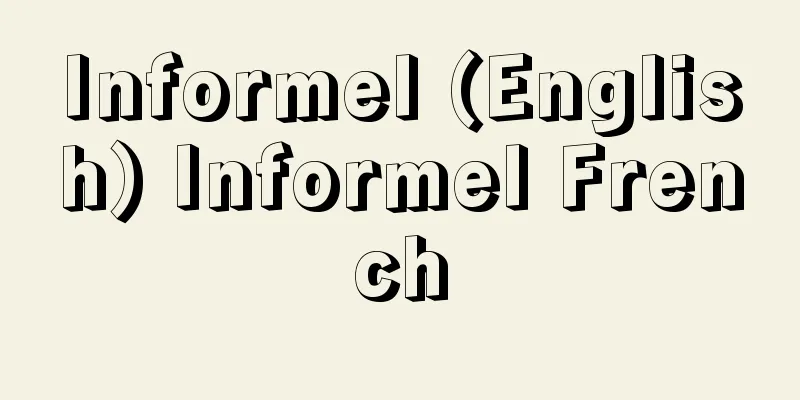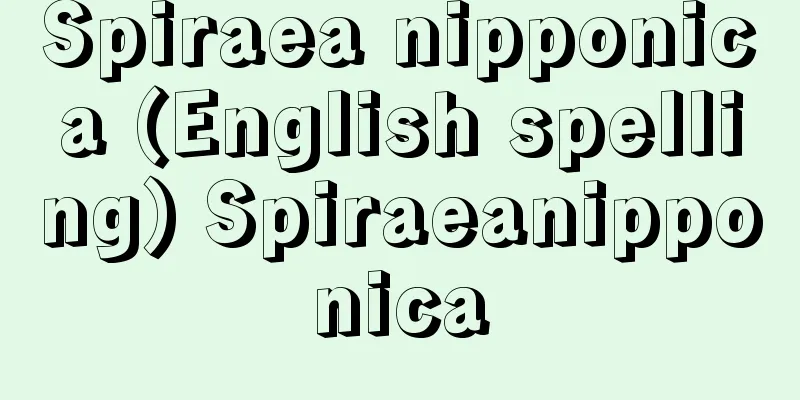Informel (English) Informel French

|
This refers to abstract art with a lyrical and expressionistic tendency that became a trend in avant-garde art mainly in the 1950s, and the movement itself. The name was derived from the exhibition "Signifiant de L'informel" (The Meaning of Informel) held in Paris in 1952 by French critic Michel Tapié (1909-1987). In the same year, Tapié published a pamphlet called " Un art autre " (Another Art), in which he declared the aims of the movement. The main artists who participated in the exhibition or were featured in "Un art autre" are: Dubuffet, Fautrier, Georges Mathieu (1921-2012), Bols, Hartung, Pollock, Michaux, Tobey, de Kooning, Jean-Paul Riopelle (1923-2002), Soulages, Appel, Rothko, Sam Francis, Klein, and Capogrossi. In other words, Informel is a movement that sought to find passionate expressions of the spirit, or "the movement of life," in "non-formal Informel," in opposition to late Cubism or the standardization and academicization of geometric abstraction, in the post-World War II period. This movement spread internationally from the 1950s until at least the early 1960s, and aroused sympathy among many critics and artists. Japanese artists who played a part in this movement included critic Soichi Tominaga (1902-1980), sculptor Hiroshi Teshigahara, and painters Toshimitsu Imai and Hisao Domoto. On the one hand, the movement was a reaction against European rationalism and classicism, but on the other hand, it had connections with Eastern calligraphy and Zen thought, which further strengthened its international reach. However, it is also true that since the late 1960s, the movement has gradually been submerged in other avant-garde movements. [Kimio Nakayama] "After Informel: How Did Japanese Art Change?" (1964), published and edited by Bijutsu Shuppansha ; "Encyclopedia of Contemporary Art: From Informel to New Painting" (1985), published and edited by Bijutsu Shuppansha [References] | | | | | | | | | | | | | | | | | | | |Source: Shogakukan Encyclopedia Nipponica About Encyclopedia Nipponica Information | Legend |
|
主として1950年代に前衛芸術の一動向となった叙情的、表現主義的傾向の抽象芸術およびその運動をさす。フランスの批評家ミシェル・タピエMichel Tapié(1909―1987)によって1952年パリで開催された展覧会「アンフォルメルの意味するもの」Signifiant de L'informelからこの名称が生まれた。同年タピエは、小冊子『別の芸術』Un art autreを出版し、この運動の趣旨を宣言している。展覧会に参加した、もしくは『別の芸術』で取り上げられた主要な作家をあげれば次のとおりである。デュビュッフェ、フォートリエ、マチューGeorges Mathieu(1921―2012)、ボルス、アルトゥング、ポロック、ミショー、トビー、デ・クーニング、リオペルJean-Paul Riopelle(1923―2002)、スーラージュ、アペル、ロスコ、サム・フランシス、クライン、カポグロッシたちである。したがって、表現主義、叙情的抽象から、アメリカの「太平洋派」や「アクション・ペインティング」などに至る広範で多様な傾向をいわば総括した形であり、それにタピエが精神的、系譜的に意味を付与したのがアンフォルメルである。すなわち、後期キュビスム、あるいは幾何学的抽象の定型化、アカデミスム化に対立して、「非定形アンフォルメル」なもののなかに、第二次世界大戦後における精神の激情的表現、「生の動き」をみいだそうとする運動である。 この運動は、1950年代から少なくとも1960年代初頭までは国際的な広がりをみせ、多くの批評家、芸術家たちの間に共感を巻き起こした。日本人としては、批評家の富永惣一(そういち)(1902―1980)、彫刻家の勅使河原宏(てしがわらひろし)、画家今井俊満(としみつ)、堂本尚郎(ひさお)などがその一環を担った。そしてヨーロッパ的合理主義、古典主義への反抗という一面のかたわら、東洋の墨蹟(ぼくせき)や禅の思想との関連という他面をもったことが、いっそう国際的な広がりを強めた。しかし1960年代末以降、しだいに他の前衛的な動向のなかに埋没していったことも事実である。 [中山公男] 『美術出版社著・刊『アンフォルメル以後――日本の美術はどう動いたか』(1964)』▽『美術出版社編・刊『現代美術事典――アンフォルメルからニュー・ペインティングまで』(1985)』 [参照項目] | | | | | | | | | | | | | | | | | | | | |出典 小学館 日本大百科全書(ニッポニカ)日本大百科全書(ニッポニカ)について 情報 | 凡例 |
>>: Amphora (English spelling)
Recommend
Unam Sanctum
…Anagni is located about 60 km southeast of Rome,...
First collection - First collection
…That is, crude oil has the lowest viscosity at s...
Renoir, P. (English spelling) RenoirP
…French film director. Born in Montmartre, Paris,...
Frederick John Kiesler
1890‐1965 Austrian artist. Born in Vienna, he part...
Cushitic languages - Kushigoha (English spelling)
The Cushitic languages are spoken in Ethiopia an...
Garbage Collection - Jinkaishu
This is the provincial law of the Date clan durin...
Fracanzano, F. (English spelling)FracanzanoF
…This area was especially famous for its Spanish-...
Serrasalmus terneti (English spelling) Serrasalmus terneti
…[Morizumi Nakamura]. … *Some of the terminology ...
hagiographia
…Medieval hagiography was not a historical biogra...
Kugu (English spelling) Cyperus cyperoides
A perennial plant of the Cyperaceae family. It is ...
Golden algae - Golden algae
…Currently, there are approximately 30,000 known ...
Load deformation
…(2) Collapse structure A collapse structure is a...
Bayonnaise Rocks
…The Bayonnaise Rocks are a group of reefs consis...
Wu Wei
A Chinese Ming Dynasty painter. Following Zai Wen...
Fuzûlî (English spelling)
[Born] 1494? Hille Died in 1556. Karbala. Ottoman ...





![Yenisei [river] - Yenisei](/upload/images/67cb090d35874.webp)



